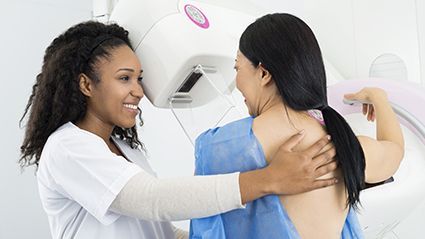
As clinics closed for non-essential care and patients’ COVID-19 fears kept them from check-ups, the United States saw a steep drop in cancer screenings and diagnoses during the first peak of the pandemic, a new report finds.
Researchers analyzed data on how many patients underwent cancer screening tests — procedures such as mammograms, colonoscopies, Pap tests, PSA blood tests for prostate cancer, and CT scans. These tests and any resultant diagnoses were tracked at Massachusetts General Brigham — a system of hospitals, community health centers and physician practices in Massachusetts.
Between March 2 and June 2, 2020 (the first peak of the pandemic), 15,453 patients underwent cancer screening, compared to 64,269 in the previous three months and 60,344 in the same three months of 2019.
There has been a healthy rebound in screening: According to the researchers, screening levels in the three months after the first pandemic peak period rose to nearly 52,000.
But the fall in tests for cancer early in 2020 could have dire consequences for patients’ health, since diagnoses of the cancers typically detected by screening also fell.
Had the same number of people been screened during the peak period as in the previous three months, about 1,438 additional cancers and precancerous growths would have been diagnosed, the study authors said.
Still, that number is lower than might have been expected. The researchers believe that’s because, with access to screening restricted, doctors may have advised only those patients at highest cancer risk to come in for a screening test.
Despite being a temporary decline, the decrease in diagnoses early in 2020 remains a cause for concern because it’s often easier to treat cancers detected at an early stage than those found at later stages.
“It’s reassuring, though, to see that in the three-month post-peak period, the number of screening tests and diagnoses resulting from those tests returned to a near-normal level,” study co-first author Dr. Ziad Bakouny, of the Dana-Farber Cancer Institute in Boston, said in an institute news release.
The study confirms concerns that “fewer people were screened for cancer and precancerous lesions during the first surge of the pandemic because of limitations on non-urgent medical procedures, restrictions on patient volume, and patients’ concerns about the spread of the virus and the need for social distancing,” Bakouny said.
The researchers advised than anyone who missed or postponed a cancer screening test early in the pandemic should now contact their health care provider to discuss the potential need to re-schedule one.
The report was published online Jan. 14 in JAMA Oncology.
Dr. Daniel Geynisman is associate professor of hematology/oncology at Fox Chase Cancer Center in Philadelphia. He wasn’t involved in the new study, but said the findings “provide an important snapshot of cancer screening and resultant diagnoses during the peak of COVID-19.”
According to Geynisman, “COVID-19 became a natural model of how to reduce screening costs, and the potential human cost of doing so. Whether those missed during COVID-19 will ever be caught is unknown and long-term follow-up would be valuable.”
More information
The U.S. National Cancer Institute has more on cancer screening.
SOURCES: Daniel M. Geynisman, MD, associate professor, department of hematology/oncology, Fox Chase Cancer Center, Philadelphia; Dana-Farber Cancer Institute, news release, Jan. 14, 2021
Source: HealthDay

Leave a Reply